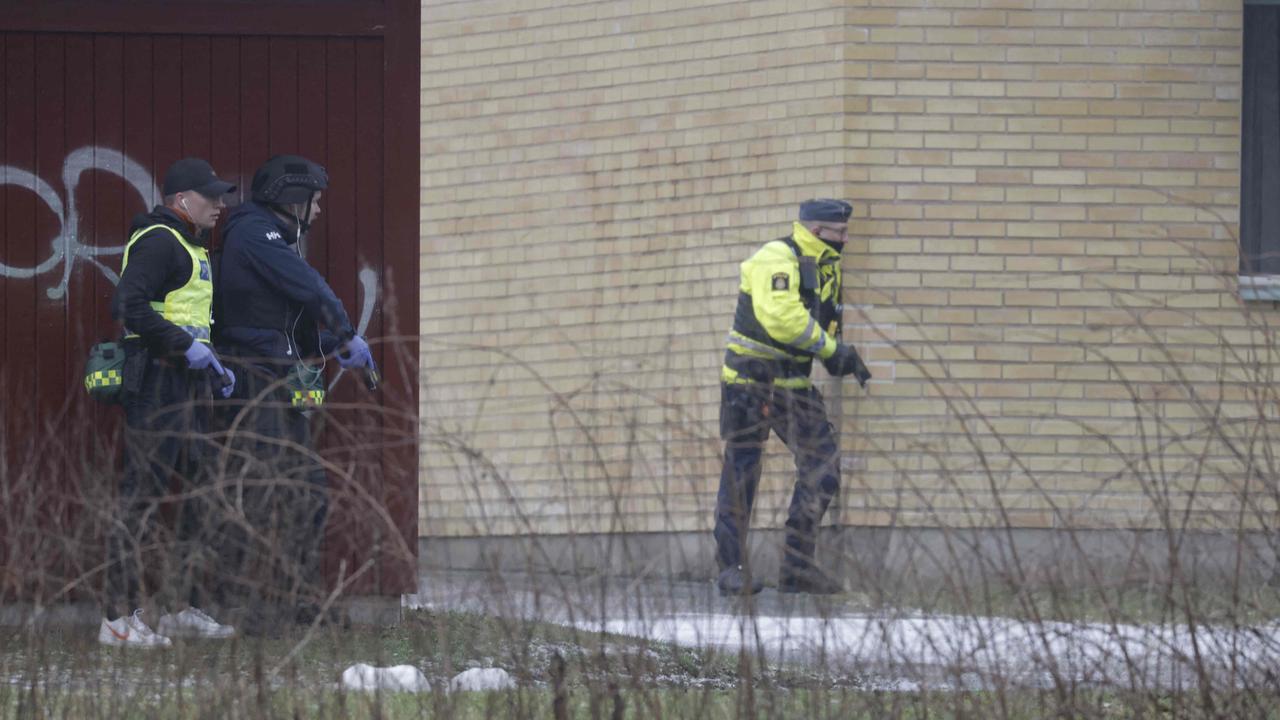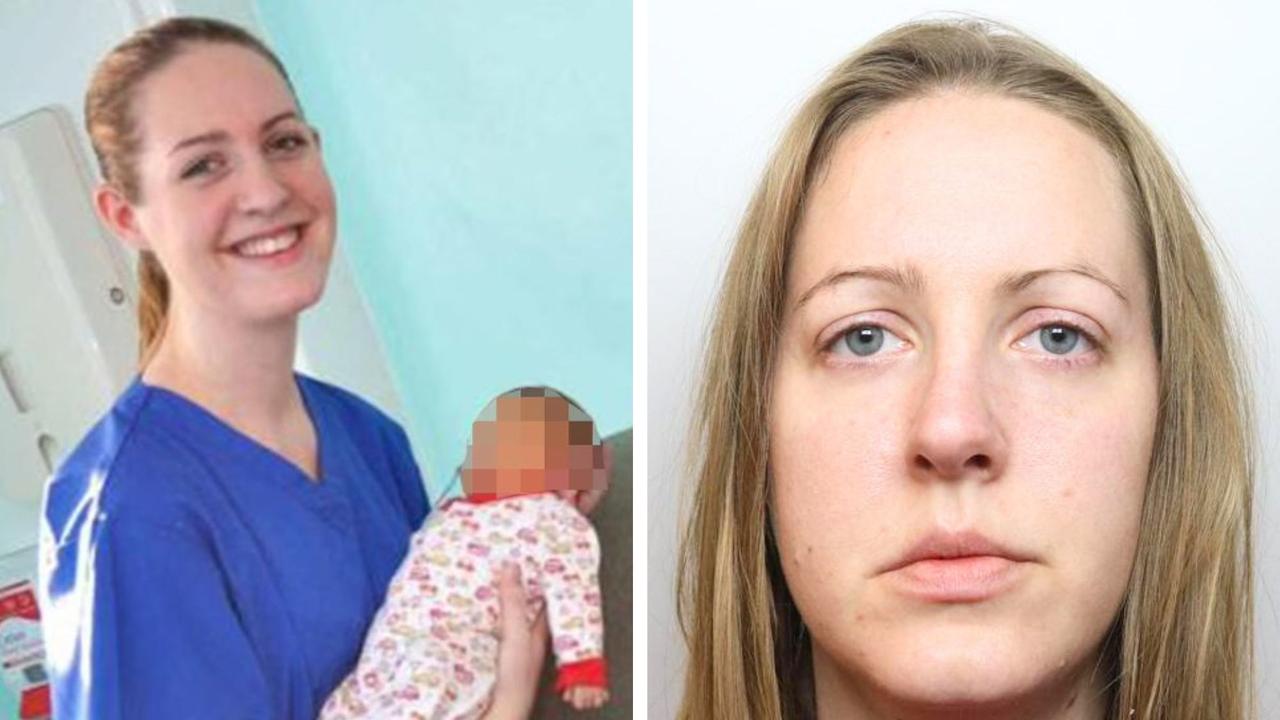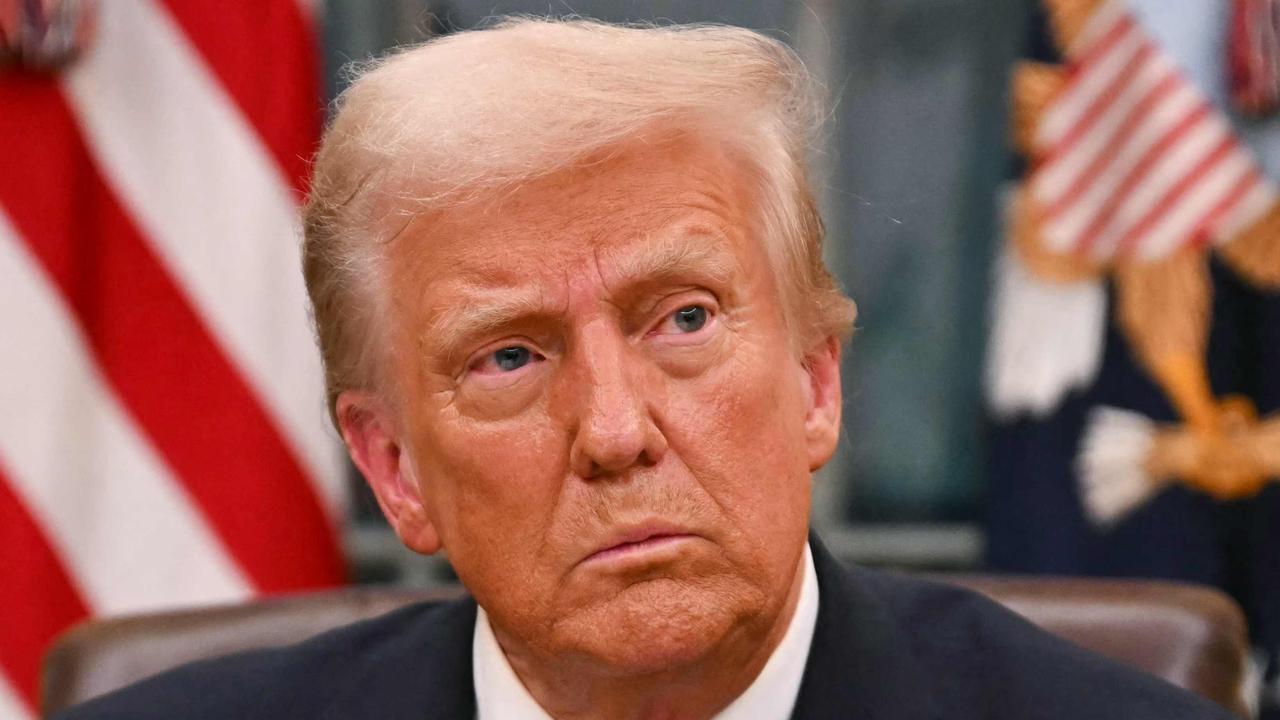Osama bin Laden killer speaks out about the raid for the first time
THE Navy SEAL who shot Osama bin Laden has spoken out about the three shots that changed history in a gripping interview with Esquire magazine.
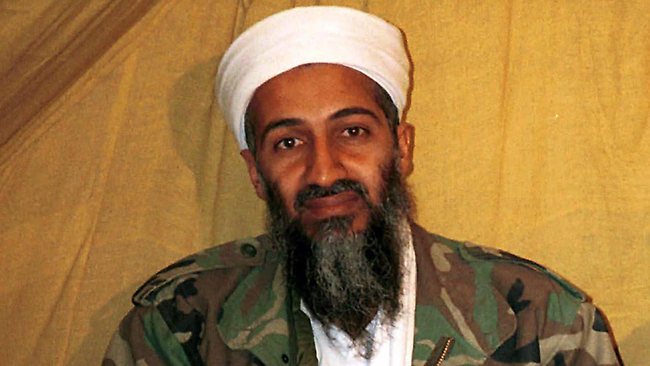
THE NAVY SEAL who killed Osama bin Laden broke his silence, recounting the night he shot the Al-Qaeda leader three times and the financial anxiety he now faces as an unemployed civilian.
The commando kept his identity secret in the Esquire magazine interview, but revealed his role in the daring May 2011 raid for the first time, as well as the worries he has for his family's security.
"He looked confused. And way taller than I was expecting," the shooter, whose name is not revealed, tells Esquire.
"For me, it was a snapshot of a target ID, definitely him. Even in our kill houses where we train, there are targets with his face on them. This was repetition and muscle memory. That’s him, boom, done."

When the commandos came upon bin Laden in the dark on the third floor of his hideout in the town of Abbottabad in Pakistan, the Al-Qaeda mastermind had his hands on his youngest wife's shoulders, "pushing her ahead" and there was an AK-47 assault rifle nearby.
"I don't know if she's got a vest and she's being pushed to martyr them both. He's got a gun within reach. He's a threat. I need to get a head shot so he won't have a chance to clack himself off (blow himself up)," the commando said.
"In that second, I shot him, two times in the forehead. Bap! Bap! The second time as he's going down. He crumpled onto the floor in front of his bed and I hit him again, Bap! same place.
"He was dead. Not moving. His tongue was out."
The shooter shares gripping details about the May 2011 raid in Pakistan and also recalls the moments leading up to the attack in which he "was counting back and forth to a thousand to pass the time," he says.
"I remember banking to the south, which meant we were getting ready to hit. We had about another fifteen minutes.
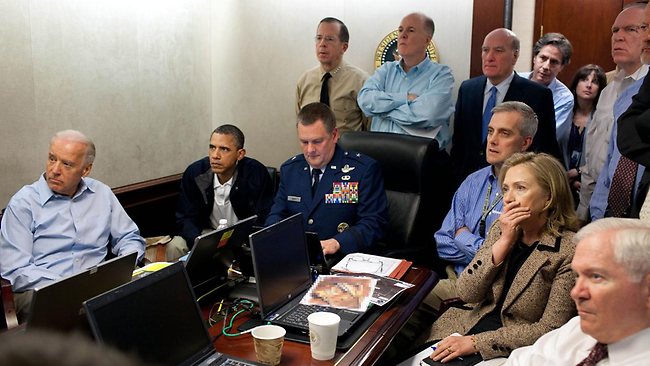
"Instead of counting, for some reason I said to myself the [former President George W. Bush] 9/11 quote: ‘Freedom itself was attacked this morning by a faceless coward, and freedom will be defended.’
"I could just hear his voice, and that was neat. I started saying it again and again to myself. Then I started to get pumped up. I’m like: This is so on."
The shooter tells Esquire that in the days leading up to the raid, the SEALs would would work out. On the treadmill, the shooter listened to "Red Nation" by the rapper Game, Esquire reports. "It's about leaving blood on the ground. We were the Red Team and we were going to leave some blood," he says.
In the evenings they'd play poker while they waited for the go ahead from US President Barack Obama. They wrote letters to their family back home as if they were their last days: all of them expected to die.
Then the word came to Vice Admiral William McRaven, head of Joint Special Operations Command. The mission was on.
Just before he got on the chopper to leave for Abbottabad, the shooter called his dad, Esquire reports. "I didn't know where he was, but I found out later he was in a Walmart parking lot. I said, "Hey, it's time to go to work," and I'm thinking, I'm calling for the last time. I thought there was a good chance of dying."

He tells the magazine: "Flying in, we were all just sort of in our own world. My biggest concern was having to piss really bad and then having to get off in a fight needing to pee. We actually had these things made for us, like a combination collapsible dog bowl and diaper. I still have mine; I never used it. I used one of my water bottles instead. I forgot until later that when I shot bin Laden in the face, I had a bottle of piss in my pocket."
The Esquire article, which referred to the unnamed commando as "the Shooter," focused on the Navy SEAL's plight as an anonymous hero without a pension, health insurance or extra security for his family, with the title: "The Man Who Killed Osama bin Laden... is Screwed."
The lengthy magazine profile came after another Navy SEAL who took part in the raid, Matt Bissonnette, published a book last year - No Easy Day - which drew the ire of Pentagon officials who allege he broke a pledge not to disclose classified information.
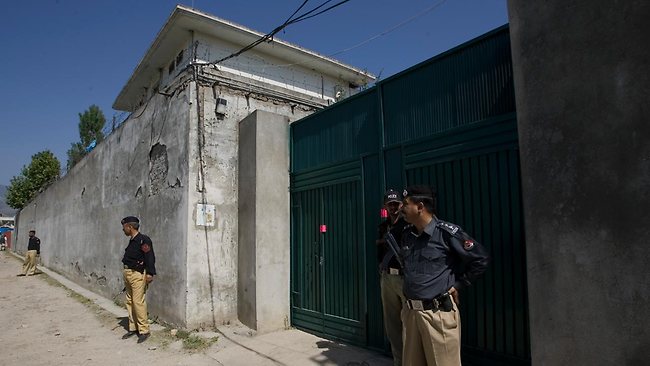
Soldiers and spies, whether retired or not, are required to submit manuscripts to the Pentagon for review to ensure no sensitive information is published. But the Esquire piece was not submitted to the department for vetting beforehand, a US defense official said.
The Defense Department is now looking at the article to check if any classified material was divulged, the official told AFP on condition of anonymity.
The Esquire article confirmed earlier accounts, including one in No Easy Day, describing how once bin Laden was mortally wounded and collapsed on the floor, other SEALs shot him repeatedly in the chest and legs.
According to Esquire, the whole confrontation with bin Laden took only 15 seconds. But the most harrowing moment came earlier, when the shooter learned that one of the stealthy Black Hawk helicopters used in the raid had crash-landed at the compound.
"We're never getting out of here now," he said.
"I thought we'd have to steal cars and drive to Islamabad. Because the other option was to stick around and wait for the Pakistani military to show up... That's when I got concerned."
After the raid, back at a base in Jalalabad, Afghanistan, the shooter brought over a female CIA officer - now made famous by the Hollywood film Zero Dark Thirty - to see bin Laden's corpse.
"We looked down and I asked, 'Is that your guy?' She was crying," he said.
"That's when I took my magazine out of my gun and gave it to her as a souvenir. Twenty-seven bullets left in it. 'I hope you have room in your backpack for this.' That was the last time I saw her."
The CIA officer is portrayed in the Oscar-nominated film as a relentless, dedicated agent, convinced after steadfastly monitoring the movements of a courier that bin Laden was in the Abbottabad compound.
Although he cited some details in the movie as unrealistic, the commando said the CIA character rings true.
He shared some lighter moments, too. On the helicopter ride to bin Laden's hideout, he badly needed to urinate and relieved himself in an empty water bottle.
"My biggest concern was having to piss really bad and then having to get off in a fight needing to pee," he said.
"I forgot until later that when I shot bin Laden in the face, I had a bottle of piss in my pocket."
The article also reveals the shooter's uneasy transition back into civilian life and how, despite being a hero, he has not reaped any rewards from the raid.
The US government put a $US25 million bounty on bin Laden that no one is likely to collect, the author of the article writes. Washington officials have said technology is the key to success in the case, rather than people.
Rather, the shooter has been left with a life filled with fear - for himself and his family. His wife knows how to use a gun and he has trained his children to hide in the bathtub at the first sign of a problem.
After bin Laden's face appeared on TV in the days after the killing, the shooter told his kids not to mention the al-Qaida leader's name ever again. "It's a bad name, a curse name," he said.
Esquire reveals how, despite being riddled with scar tissue, arthritis, tendonitis, eye damage, and blown disks, the shooter has even been denied health insurance by his country.
"My health care for me and my family stopped at midnight Friday night," the shooter said in the days after leaving service. "I asked if there was some transition from my Tricare to Blue Cross Blue Shield. They said no. You’re out of the service, your coverage is over. Thanks for your sixteen years. Go f-ck yourself."
According to the article if he had remained in the army for another four years he would then have been eligible for a half-base-pay pension but would have been required to stay for 14 more to be eligible for full pay.
"He gave so much to his country, and now it seems he's left in the dust," his wife said.

